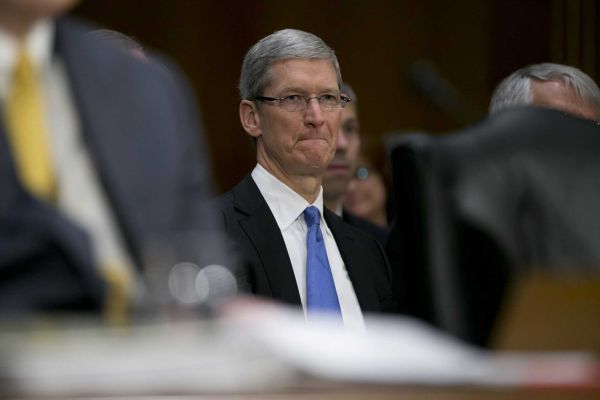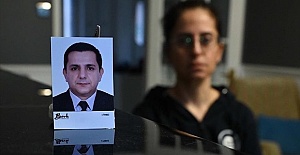The Senate Permanent Subcommittee on Investigations released a report Monday that held up Apple as an example of the legal tax avoidance made possible for companies by the U.S. tax code. It estimates that Apple avoided at least $3.5 billion in U.S. federal taxes in 2011 and $9 billion in 2012 by using its tax strategy and described a complex setup involving Irish subsidiaries. Even if additional tens of billions from Apple began flowing into the U.S. Treasury, the money would barely put a dent in the $642 billion federal budget deficit. But Apple as a symbol resonates with politicians seeking to make the case that a powerful corporation shouldn’t be excused from its fair share of taxes. The spotlight on Apple comes at a time of heated debate over whether and how to raise revenues to help reduce the high U.S. deficit. Many Democrats say the government is missing out on billions of dollars because companies are stashing profits abroad and avoiding taxes. Republicans want to cut the corporate tax rate of 35 percent and ease the tax burden on money that U.S. companies make abroad. They say the move would encourage companies to invest at home. Cook reaffirmed Apple’s position that given the current U.S. tax rate, it has no intention of bringing that cash back to the U.S. Like other companies, it has a responsibility to shareholders to pay as little as possible in taxes.
Thanks largely to the iPhone, Apple is also one of the world’s most profitable companies. It earned $41.7 billion in calendar year 2012. It’s neck and neck with Exxon Mobil Corp. as the world’s most valuable company. Apple’s enormous profits mean that it has more cash stashed overseas than any other company: $102 billion.
Apple uses five companies located in Ireland to carry out its tax strategy, according to the report. The companies are located at the same address and share members of their boards of directors. While all five companies were incorporated in Ireland, only two of them also have tax residency in that country.
That means the other three aren’t legally required to pay taxes in Ireland because they aren’t managed or controlled in that country, in Apple’s view.
The report says Apple capitalizes on a difference between U.S. and Irish rules regarding tax residency. In Ireland, a company must be managed and controlled in the country to be a tax resident. Under U.S. law, a company is a tax resident of the country in which it was established. Therefore, the Apple companies aren’t tax residents of Ireland or the U.S., in Apple’s view. Cook argued that the Irish subsidiaries don’t reduce the company’s U.S. taxes.
Apple CEO Tim Cook faces US Senate questions on taxes
Tim Cook testifies before the Senate about the company’s offshore profit shifting and tax avoidance.
22 Mayıs 2013 Çarşamba 09:27
reads.



 After Nesil Caliskan a by-election will be held in Jubilee ward in Enfield
After Nesil Caliskan a by-election will be held in Jubilee ward in Enfield Publishing the analysis, Labour’s Cllr Ergin Erbil said Everybody in Enfield deserves basic rights
Publishing the analysis, Labour’s Cllr Ergin Erbil said Everybody in Enfield deserves basic rights Gaza-Israel conflict Statement from Cllr Ergin Erbil, Leader of Enfield Council
Gaza-Israel conflict Statement from Cllr Ergin Erbil, Leader of Enfield Council Cllr Ergin Erbil was elected as the new Leader of Enfield Council
Cllr Ergin Erbil was elected as the new Leader of Enfield Council London aging faster than any other UK city, study reveals
London aging faster than any other UK city, study reveals Cold weather health alerts issued ahead of snow
Cold weather health alerts issued ahead of snow London defies weather with spectacular fireworks display to ring in 2025
London defies weather with spectacular fireworks display to ring in 2025 Alim Karaca, who hosted Bill Gates, Jeff Bezos, Trump, talked about Fethiye
Alim Karaca, who hosted Bill Gates, Jeff Bezos, Trump, talked about Fethiye Footballers are celebrating after Enfield Council officially opened a pitch
Footballers are celebrating after Enfield Council officially opened a pitch  Pep Guardiola's Manchester City beaten by Juventus
Pep Guardiola's Manchester City beaten by Juventus Chelsea to meet Arsenal in Sunday's London derby
Chelsea to meet Arsenal in Sunday's London derby Fenerbahce vs Manchester United Predicted line-ups! Jose Mourinho faces former side
Fenerbahce vs Manchester United Predicted line-ups! Jose Mourinho faces former side The transformational Elizabeth line reaches 500 million passenger journeys
The transformational Elizabeth line reaches 500 million passenger journeys HMRC DELAYS AGENT SERVICES ACCOUNT APPROVALS
HMRC DELAYS AGENT SERVICES ACCOUNT APPROVALS UK economy had zero growth between July and September
UK economy had zero growth between July and September Shape the future of housing services with The Enfield 500
Shape the future of housing services with The Enfield 500

















